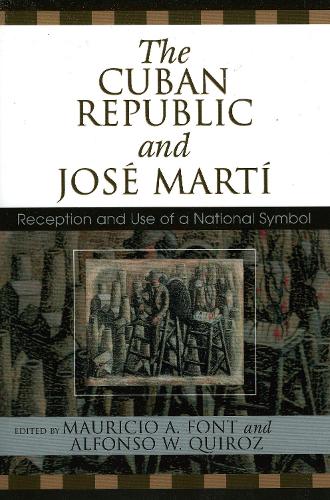
The Cuban Republic and JosZ Mart': Reception and Use of a National Symbol
(Paperback)
Publishing Details
The Cuban Republic and JosZ Mart': Reception and Use of a National Symbol
By (Author) Mauricio Font
Edited by Alfonso Quiroz
Contributions by Paul Estrade
Contributions by Ottmar Ette
Contributions by Mauricio A. Font
Contributions by Joao Felipe Goncalves
Contributions by Lillian Guerra
Contributions by Laura Lomas
Contributions by Antonio Lopez
Contributions by Jose Matos
Bloomsbury Publishing PLC
Lexington Books
9th December 2005
United States
Classifications
Tertiary Education
Non Fiction
972.9106092
Physical Properties
Paperback
274
Width 161mm, Height 227mm, Spine 21mm
404g
Description
Jose Marti contributed greatly to Cuba's struggle for independence from Spain with words as well as revolutionary action. Although he died before the formation of an independent republic, he has since been hailed as a heroic martyr inspiring Cuban republican traditions.
During the twentieth century, traditionally nationalistic literature has reinforced an uncritical idealization of Marti and his influence. However, new approaches have recently explored the formation, reception, uses and abuses of the Marti myth.
The essays in this volume analyze the influence of Jose Marti - poet, scholar, and revolutionary - on the formation of often-competing national identities in post-independence Cuba. By exploring the diverse representations and interpretations of Marti, they provide a critical analysis of the ways in which both the left and right have used his political and literary legacies to argue their version of contemporary Cuban "reality."
Author Bio
Mauricio A. Font is Professor of Sociology at Queens College and the Graduate Center. He is also the Director of the Bildner Center for Western Hemisphere Studies. Alfonso W. Quiroz is Professor of History at Baruch College.
